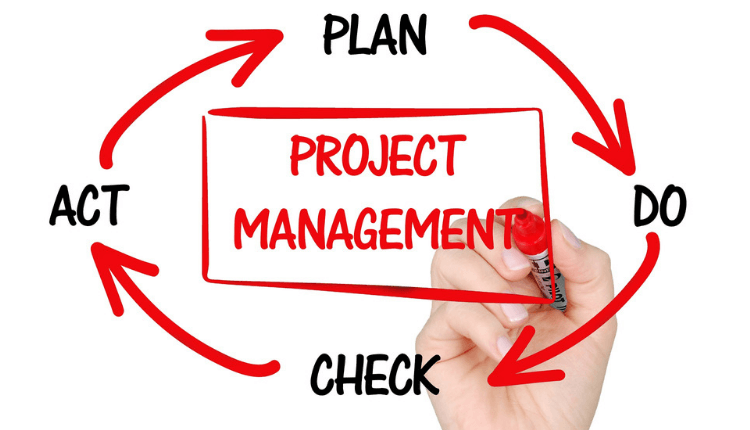4 Essential Project Management Skills for PhD Students

Earning a Ph.D. requires you to complete years of coursework, perform laboratory studies, publish your work, and attend conferences. Time management, therefore, is a difficult but necessary aspect of this undertaking. In this article, we want to share important project management tips that can help you as you complete your Ph.D.
The Need for Project Management Skills
Dr. Fiona Saunders, Head of Education at Manchester Metropolitan University’s School of Engineering, says Ph.D. students can sometimes find themselves “lost in a fog.” This means that they have difficulty setting a plan and staying organized while taking on big projects.
But how does a student learn these skills? Angel Santiago-Lopez, a Ph.D. candidate in bioengineering at the Georgia Institute of Technology (Atlanta), feels that a Ph.D. program should include some aspect of project management instruction. This instruction would teach students how to develop project topics, organize project goals, and build schedules.
Important Project Management Skills
Define Your Project
It is very important that you clearly define the project and its different parts. Do not simply say that you want to do a study of bioethics in the 21st century. Instead, define your project as something new that will contribute to important work being done in the field.
Time Management
Time management is vital. Deadlines are an important structuring tool for any project. There are many ways that you can structure your timeline.
- First, have an end goal. This is the final deadline for your project. You can look at this as the day when you want to turn in a completed, revised project to your professor.
- Second, you can make deadlines for individual parts of the project. For example, if it is an article that you hope to publish, you can set deadlines for each section of the article.
- Lastly, make study goals. Set a daily or weekly schedule for doing research and completing parts of your study.
Fortunately, there are many tools that you can use. For example, flow charts and Gantt graphs are a good visual representation of a project management plan. Also, there is an abundance of project management software that can help you set up and execute a project management plan.
Use Checkpoints
Checkpoints are an important way to see if you are making progress and keeping to your schedule. Also, these checkpoints will keep you motivated to continue working towards your goals.
A few examples of checkpoints are:
- Meetings with professors
- Meetings with fellow students
- Completing individual sections of the project
- Personal deadlines for completing research
Checkpoints can also help you prepare for the unexpected. A checkpoint gives you time to reassess your progress and fix any errors that might have been made.
Define Success
Everyone wants to do “good work.” But, what does that mean? You need to set a clear definition of success in order to monitor the quality of your project. For example, your project should introduce a new idea. Or, it should solve a longstanding problem in your field. Regardless of the end goal, the project should be new and interesting while introducing new ideas on a topic.
Using Project Management Skills in Any Career
Project management is a vital tool for many career paths. At its core, project management involves an aptitude in creativity and problem-solving. Project management in the sciences is extremely important. From grants to personal projects, these skills will help you manage projects of any scale and scope. This is even more important as many Ph.D. graduates are pursuing careers beyond academia.
What are your experiences with project management? How have you used these skills in your academic work? Please share with us in the comments.










I’m agree with authors,because time management is one of the most difficult things that you face in work study. Samely, using schedules does easier and efficient your research works.
Lastly, if you have your goals clearly, you¨ll get success in appropieted time.